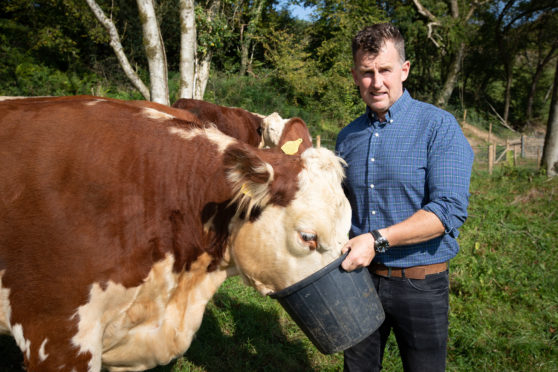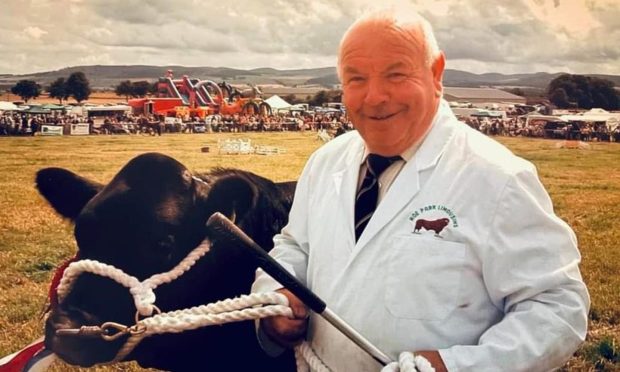A fund worth £250 million is on offer for farming customers of Barclays bank who want financial support to meet carbon and sustainability targets.
The bank is focusing on the use of agri-tech to help the industry meet targets and improve profitability after an Opinion Matters survey of 1,000 producers – including 276 in Scotland – revealed more than two thirds believed technology could help their businesses become more sustainable and efficient.
Graeme McNaughton, the Scottish director for Barclays Agriculture, said the bank’s research showed the “average Scottish farmer” was set to invest £187,663 over the next decade to achieve climate change targets.
“That’s why we’ve made available £250 million, and with our team of agricultural relationship managers we can help to advise on investments and their carbon net-zero ambitions,” he said.
Examples of the agri-tech that would be supported include using robots to milk cows and backscratchers or hoof scrapers to improve welfare. Other examples quoted by the bank include automated feeding systems and motion sensors which use algorithms to monitor cow health.
In the bank’s survey, a quarter of Scottish farmers said they intend to or have already improved their waste and slurry management, while 25% have either invested, or plan to, in agri-tech in order to become more efficient.
Scottish respondents also focused on plans to plant more trees and hedgerows as well as investing in solar power and wind turbines.
However, while the Barclays survey indicates that eight in 10 farmers believe they could be carbon neutral ahead of the 2040 target set by the Scottish Government, these aspirations do not fit with the recent findings in an independent report written by environmental, climate and livestock scientists from eight UK research institutions.
The scientists found the technologies available would not be capable of delivering even half the 2050 ambitions.
In another Barclays survey of 2,000 adults (168 in Scotland) in September, the bank said it had uncovered an appetite among Scottish consumers for carbon-neutral foods, with the “average Scot” prepared to pay an extra £190.84 per annum to be guaranteed sustainable produce.
The bank has enlisted the support of Welsh rugby referee and cattle farmer Nigel Owens who said his 35 cows played an important role in the ecosystem when managed properly.
He added: “Grassland is good at capturing carbon from the atmosphere, and soil is key to carbon sequestration policies, an underrated solution to tackling climate change.
“I’ll continue to plant more trees and will look into technologies that can help the farm to become more efficient too.”
More information on how to apply for support is on the bank’s website.










